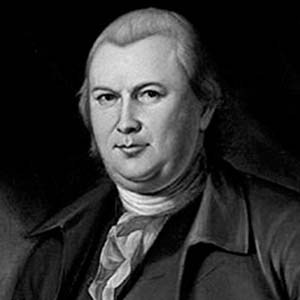Robert Morris was an influential businessman and accomplished politician. He signed the Declaration of Independence, the Articles of Confederation, and the U.S. Constitution.
Early Life
Morris came to the colonies as a young boy. After serving as an apprentice, he became a successful merchant, founding the shipping-banking firm of Willing, Morris & Co. Morris protested against the Stamp Act of 1765, but remained loyal to the Crown.
Political Career
When war ultimately broke out, Morris used his trade connections to procure intelligence about British troop movements and donated his merchant ships to the Navy. He served in the Continental Congress from 1775-1778, playing a prominent role on the Secret Committee of Trade and the Marine and Maritime Committees.
On July 1, 1776, Morris initially objected to Congress’ proposal for independence. However, he later agreed to abstain, clearing the way for his fellow Pennsylvania delegates to vote for independence. He later signed the Declaration of Independence, stating: “I am not one of those politicians that run testy when my own plans are not adopted. I think it is the duty of a good citizen to follow when he cannot lead.”
Morris served as the Superintendent of Finance from 1781-1784 and is largely credited with keeping the country afloat financially during the Revolutionary War. He worked tirelessly to fund the army, often using his own funds to support the war effort. In 1782, the country also chartered its first financial institution — the Bank of North America — under Morris’ leadership.
Later Career
Robert Morris was a member of Pennsylvania’s delegation to the Constitutional Convention. He did not serve on any committees at the Convention and spoke very little, according to historical accounts. Nonetheless, it appears he worked behind the scenes and was well-respected by his peers. William Pierce wrote:
Robert Morris is a merchant of great eminence and wealth; an able Financier, and a worthy Patriot. He has an understanding equal to any public object, and possesses an energy of mind that few Men can boast of. Although he is not learned, yet he is as great as those who are.
After the ratification of the Constitution, President George Washington asked Morris to serve as the country’s first Secretary of the Treasury. However, he declined, recommending that Alexander Hamilton fill the role. Morris instead pursued election to the U.S. Senate and held a seat from 1789-1995.








